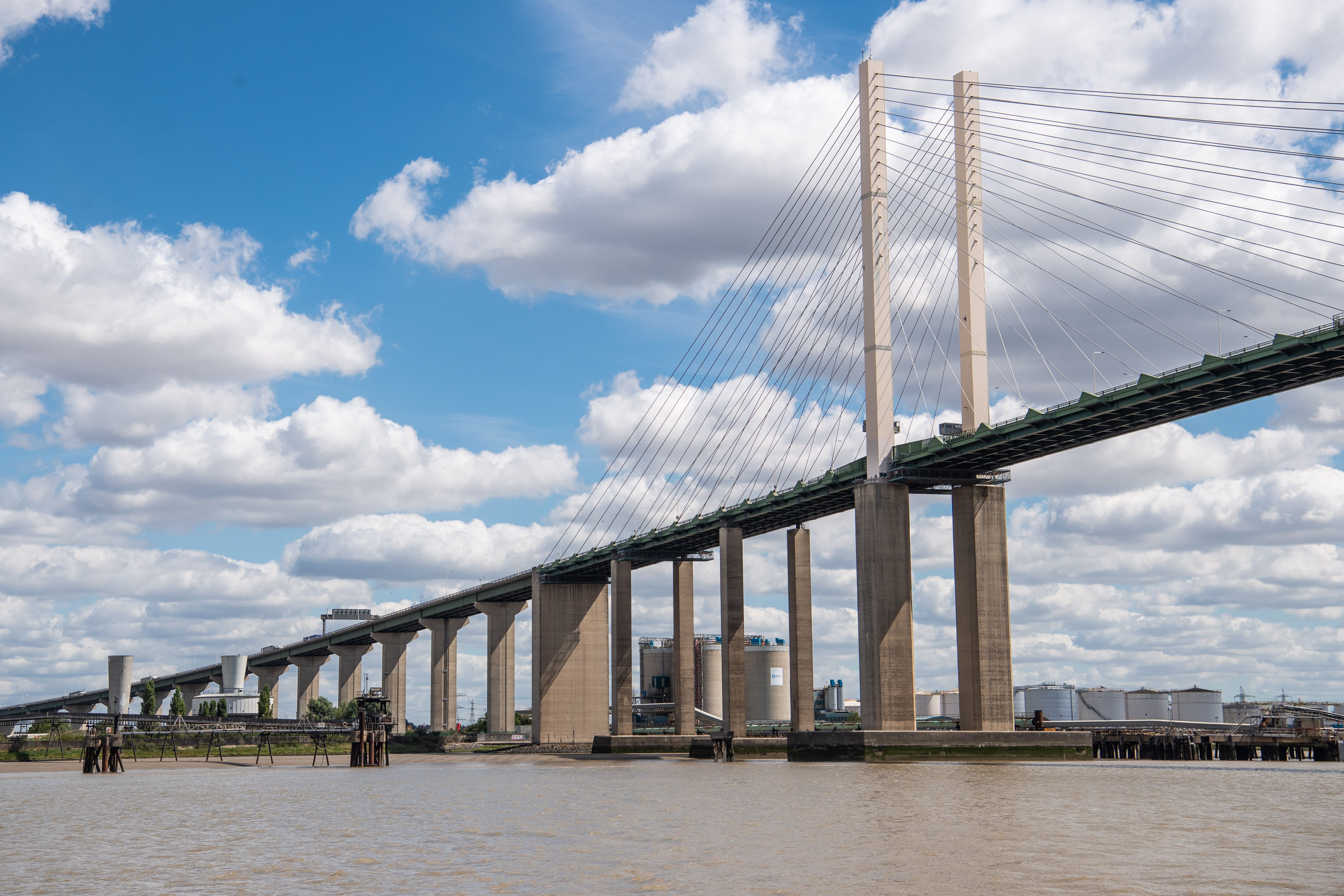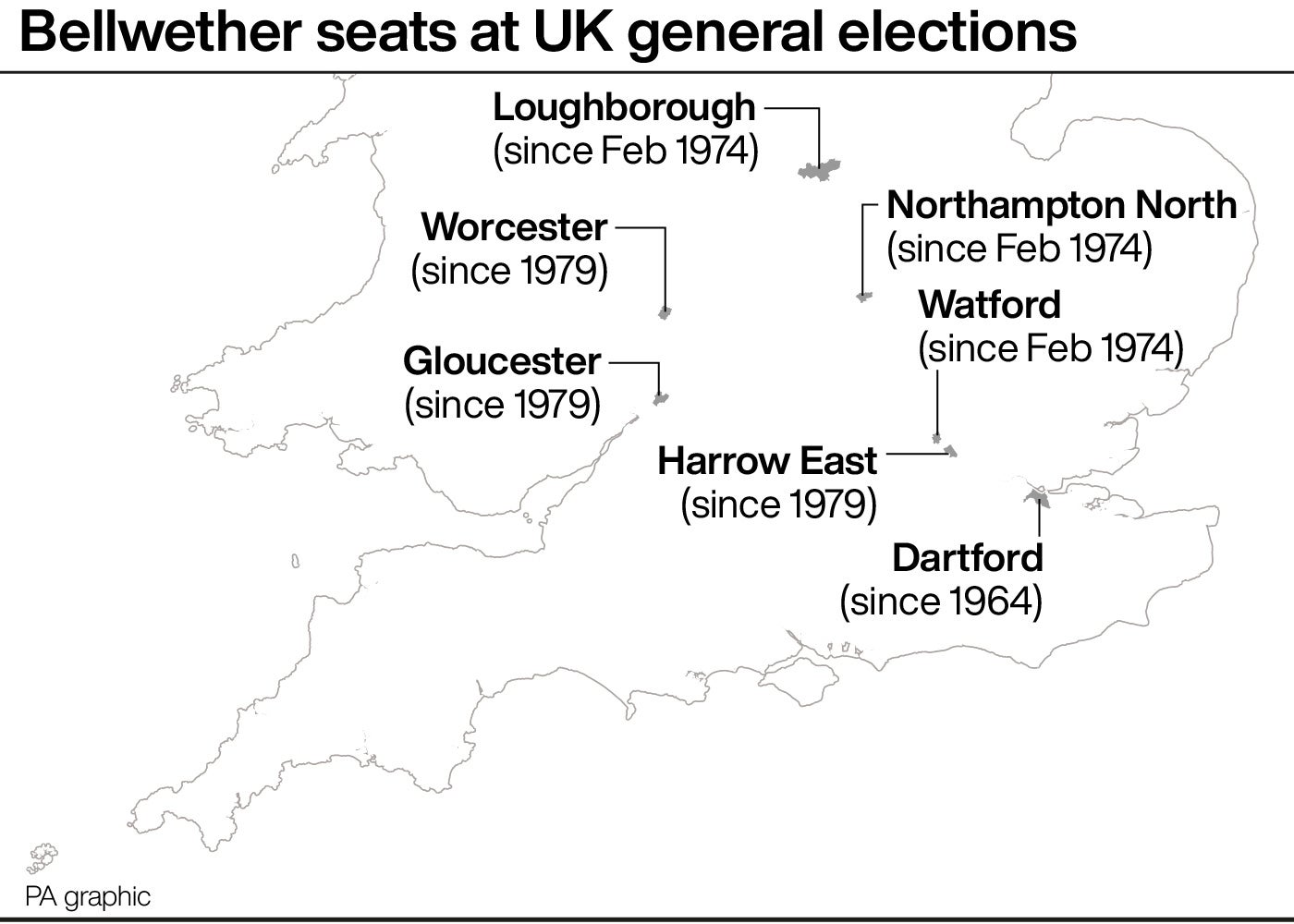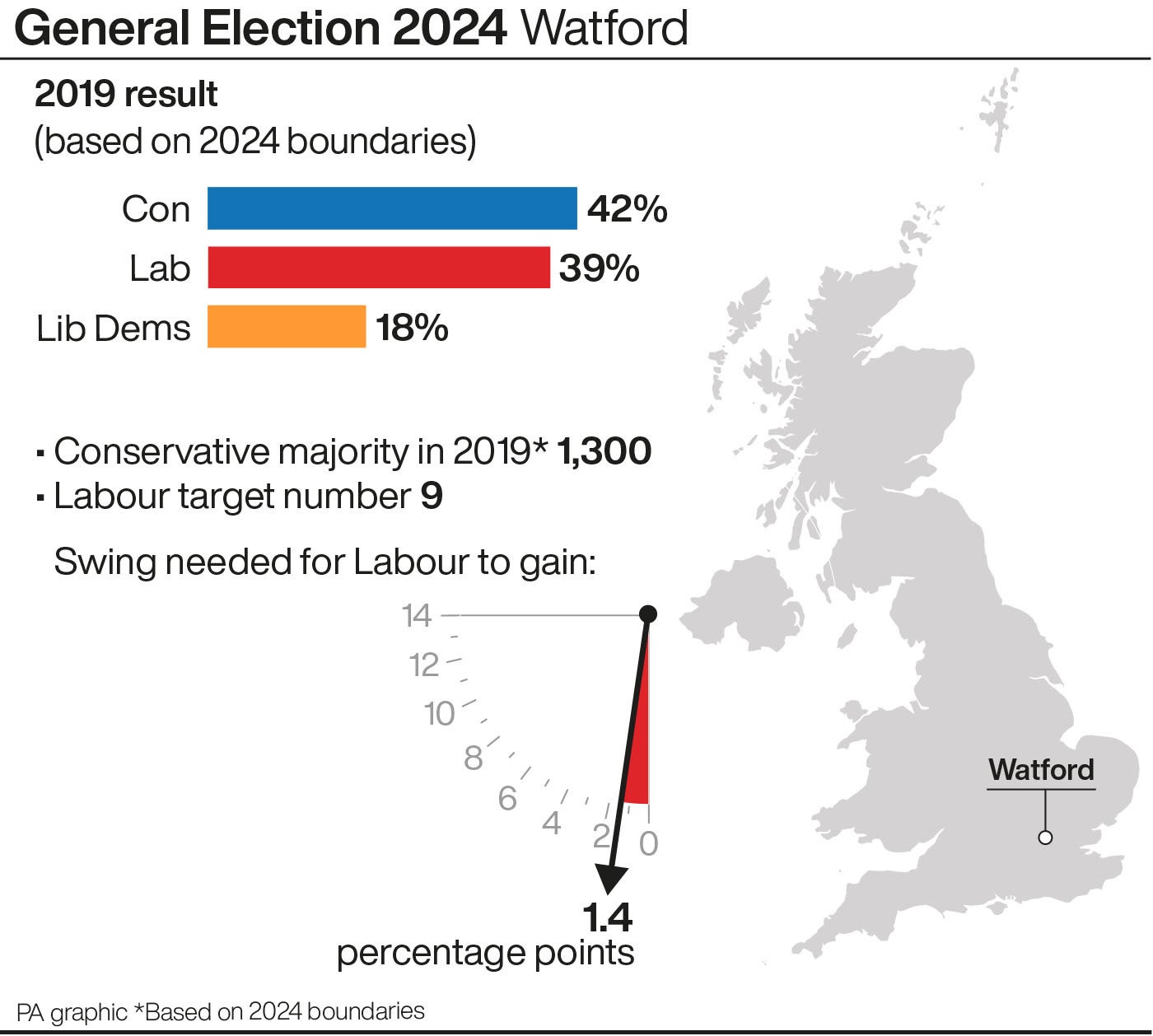What are the ‘bellwether’ seats at the General Election?
The seat with the longest track record of being a bellwether is Dartford in Kent.

The election results in a handful of seats in England will be watched particularly closely, because of their status as “bellwethers”.
– What are bellwether seats?
In general elections, constituencies where the local result has a habit of matching the overall national outcome are known as bellwethers.
They are seats that have a pattern of changing hands only when the government itself changes hands.
A small number of constituencies have been bellwethers for decades, and as such are watched with interest for what they may – or may not – suggest about the outcome of the entire election.
– Which seat has the longest record for being a bellwether?
Since 1964, whichever party wins Dartford has also gone on to form the government.
At this election, Conservative candidate Gareth Johnson is defending a notional majority in Dartford of 14,704.

It is described as a notional majority, because it is what Mr Johnson is likely to have won in 2019 had that contest taken place using the new constituency boundaries that have been introduced across the UK for the 2024 election.
– Is Dartford likely to keep its bellwether status at this election?
Were Labour to form the next government, Dartford would remain a bellwether only if it too was won by Sir Keir Starmer’s party.
Labour needs a direct swing in the share of the vote of 15.9 percentage points to gain Dartford from the Conservatives.
This is the equivalent of a net change of 16 in every 100 people who voted Tory last time switching sides.
The swing is large enough to rank Dartford at number 185 on Labour’s list of targets, making it the type of seat likely to change hands if the party was heading for a landslide victory.
– What are the next longest-running bellwethers?
Three seats have been bellwethers at every general election since February 1974: Loughborough, Northampton North and Watford.
All three are top Labour targets at this election, and the Tories would lose them to Sir Keir’s party on swings of 5.9 percentage points, 3.9 points and 1.4 points respectively.
Watford ranks at number nine on Labour’s target list, while Northampton North is 38th and Loughborough is 61st.

Worcester has been a bellwether since 1979.
At the 1997 general election, attracting the support of so-called “Worcester Woman” was considered by Labour to be vital for victory nationwide.
At this election, Labour needs a swing of 6.7 points to take Worcester from the Conservatives, ranking it at number 70 on the party’s target list.
Sir Keir held two campaign events in Worcester soon after the election was called.
Two other seats have been bellwethers since 1979: Harrow East and Gloucester.
Harrow East in north London would need a swing of 8.6 percentage points for Labour to gain it from the Conservatives, while Gloucester would need one of 9.7 points.
Prime Minister Rishi Sunak has twice visited Harrow East since the start of the election campaign.
Subscribe to Independent Premium to bookmark this article
Want to bookmark your favourite articles and stories to read or reference later? Start your Independent Premium subscription today.
